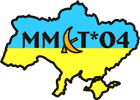 |
IEEE AP/MTT/ED/AES/GRS/NPS/EMB Societies East Ukraine Joint Chapter National Academy of Sciences Scientific Council on Radio Physics & Microwave Electronics |
|
|
|
||
| Overview | Topics | Deadlines | Papers | Downloads | Hot Links |
|
|
Report
on the Fourth International Seminar
Crimea (Ukraine), September 18-23, 1991 by Edward V.Jull,Dept. Of Electrical Engineering, University of British Columbia, 2356 Main Hall, Vancouver BC V 6T 1W5, Canada(from IEEE Antennas and Propagation Magazine, V.34, N 2, April 1992, pp.79-80)
Eldar Veliev and Alexander Nosich, of the Institute of Radiophysics and Electronics, Ukrainian Academy of Sciences, in Kharkov, were co-chairmen and organizers of the meeting. It was sponsored by "Test-Radio", a Kharkov research and development firm headed by Valery Zhilkov. The first two meetings of this series of seminars had only Soviet participants. The third, in April, 1990, had four invited foreign lecturers, and adopted English as the working language. At this 1991 meeting there were invited speakers from Australia, Canada, Germany, Japan, Korea, Sweden, Turkey, and the USA. It was held in the attractive Black Sea resort city of Alushta. For most of the foreign guests, the seminar was preceded by a tour on overnight trains from Moscow to Simferopol, with a stopover at a hotel in Kharkov. This bonus trip, all expenses paid by the organizers, occurred because the hotel Yunost, in Alushta, had no rooms for us. In Kharkov, we visited the Institute of Radiophysics and Electronics, and were received by its Director, V.P.Shestopalov, who is well known for his work on diffraction gratings. We were shown some of the remarkable technical achievements of the institute in active and passive millimeter-wave devices, remote-sensing instruments, and polarimetric radars. Diffraction-grating specialists in the group were particularly expressed by their use in powerful diffraction generators. After this unexpected tour in the Ukraine, the conference began in Alushta. The six-day program of 66 papers, including 28 one hour lectures, 18 twenty-minute presentations, and 20 poster papers, all occurred in one room. There was plenty of commentary, criticism, and discussion. This can be the most interesting part of a meeting, and too often there is not enough time for it at our large meetings in the west. The traditional strong background in applied mathematics, evident in the Ukrainian and Russian presentations, ensured that numerical solutions did not dominate. What has changed since my last conference in the Soviet Union (1971) is the ability of our Ukrainian and Russian colleagues to communicate well in English. It is now far easier to follow their talks. Midway through the conference, there was an excursion to Yalta and the palace where the 1945 agreement, which divided Europe for the next 45 years, was signed. The banquet that evening included lively Ukrainian dancing, with participation apparently expected of all visiting foreigners. Unfortunately, because of the altered dates, I had to leave before the end of the conference. So I missed some of the papers and the final excursion, but I heard about it. It was like to an unusual spot: a hilltop overlooking the Black Sea villa where President Gorbachev was on involuntary "sick leave" only a few weeks earlier. Then, it could have been a dangerous place to be. Hearing of this reminded me of the remarkable fax message we got from Alex Nosich, the organizer, about four weeks earlier. It was sent August 20, and urged us not to cancel our plans to attend MMET'91 because of the temporary disturbances in Moscow. It said he was certain the coup was abortive, and that normal conditions would prevail by the time of our meeting. Fortunately, he was correct. The organizers and sponsor are to be congratulated for a successful and enjoyable meeting. |